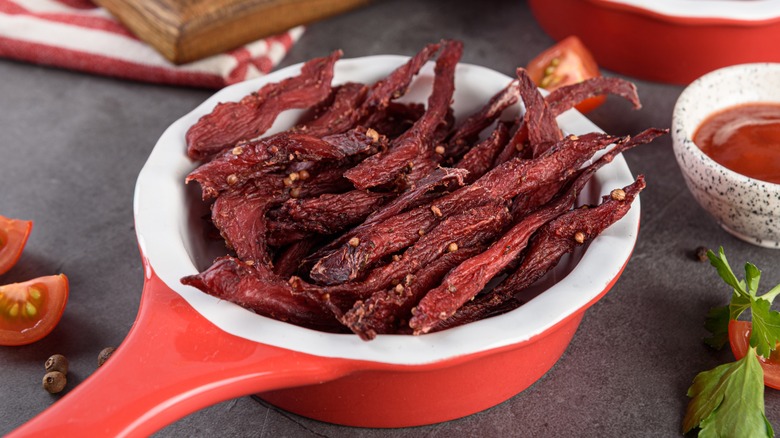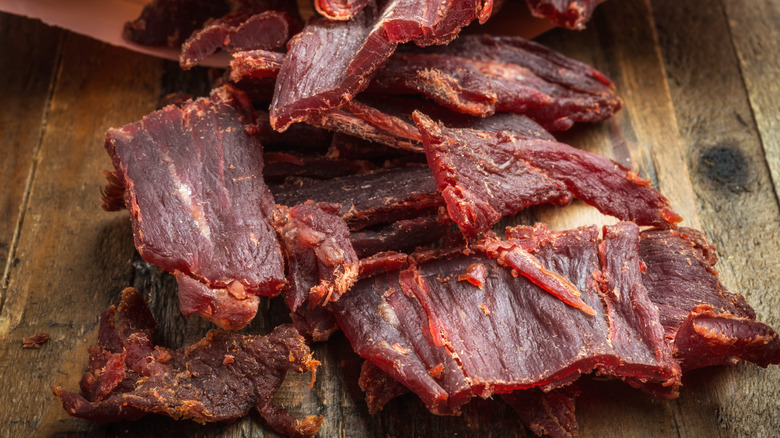How To Know When Beef Jerky Is Perfectly Done
We may receive a commission on purchases made from links.
Good jerky is reliable and an easy snack to chew on while you're out on the road, but beef jerky can be expensive when you buy it from the store. Beef jerky takes time and good quality beef to make. If you have some free time at home, it's entirely possible to make your own beef jerky. You just need to make sure it's properly cooked, otherwise it's just a thin strip of well-done steak, which sounds much less appetizing than a strip of beef jerky. We spoke to Jon Urbana, founder of KOW Steaks, about how long you should cook homemade jerky.
True to form, your goal is to cook beef jerky until there's no water left. "When beef jerky is done, there should be no pooling moisture on the surface at all," Urbana told The Takeout. "The pieces should have an even, golden brown color and feel dry to the touch but still bend slightly without cracking." Touch and texture are good indicators, but it's not the only sense you have to rely on. "The aroma should be rich and savory, and the flavor should be fully developed with no raw or soft spots." In the world of regular steaks, fatty cuts reign supreme because lean steaks dry out quickly when you cook them; making them steaks you might enjoy more when cooked rare. When it comes to beef jerky, that tendency to dry out works to your advantage.
Dry, golden brown beef jerky
If the goal is to dry out the meat, how hot should you be cooking it? Urbana explains that properly cut beef jerky is too thin to stick a meat thermometer into it, meaning it's impossible to get a good measure of the meat's internal temperature. Instead, he uses a water activity meter to precisely measure jerky while it's cooking. "To be considered true jerky, it needs to have a moisture-to-protein ratio of 0.75:1 or less," he said. "For most people making it at home, the easiest check is by look and feel. The surface should be dry with no pooling moisture, and the jerky should bend but not snap."
Homemade jerky may not stay fresh for as long as store bought jerky, but you can expect it to last at least a couple of months if you store the homemade beef jerky in a secure, airtight container. A leaner cut of steak will also make your jerky last longer than a fattier cut. Top or bottom rounds are the ideal kinds of beef you should use for beef jerky, because it's much harder to fully cook moisture out of fat than lean meat.

